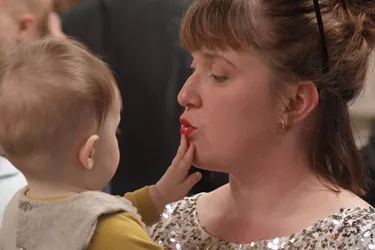Co-production in mental health - why everybody wins
Lucie Stephens, Head of Co-production at the new economics foundation blogs about putting service users at the heart of planning and delivering mental health services saves money and changes lives.
This blog was originally posted on the new economics foundation (nef) blog.
Putting service users at the heart of planning and delivering mental health services saves money and changes lives.
Last month a mental health nurse turned twitter activist, Helen, made a crucial point about mental health services in the UK. By providing a running tweet commentary on her own time as a patient in a mental health hospital she highlighted the powerlessness and alienation often experienced by people within the system.
But what if the firsthand knowledge and insights held by service users like Helen could be harnessed to not only improve, but help deliver our mental health services?
The report
Today we’re launching a new report, commissioned by Mind, the mental health charity, which explores the potential of co-production to do just this.
Co-production is essentially where professionals and citizens share power to plan and deliver support services together, recognising that both partners have a vital contribution to make. One example of a co-produced approach we reviewed is the Service User Network in Croydon. The network has been designed jointly by psychiatrists and service users who work together on an ongoing basis to deliver it. The network combines professional and lived experience and creates active networks that support people’s recovery.
We’ve been working with Mind to understand when, why and how co-production has been used in mental health services in the UK and internationally, and the impact this has – both on people’s lives and the public purse.
Getting more from our services
We found that when mental health services were co-produced, those services were more effective for the people using them. They experienced:
- An improved sense of belonging to local groups and networks. Co-produced activity supported stronger relationships with peers, family and friends: in one example 90% of participants reported reduced isolation.
- Reduced stigma. People involved in co-production experienced reduced stigma from professional staff in mental health services; less stigma in accessing services and reduced stigma from the ‘community’.
- Increased skills and employability. Co-production meant people were able to improve skills, engage with formal learning and training opportunities and gain longer-term employment. People involved in the Expert Patient Programme reported a 24% increase in paid employment.
- Reduced need for emergency health care. In Croydon the members of the co-produced Service User Network reported a 30% reduction in the use of accident and emergency services after six months. In Arizona, the peer employment training approach reduced re-hospitalisation by 56% after one year.
- Improving physical and mental well-being. This was the strongest theme that emerged. We found that interventions shaped by co-production had a powerful impact on people’s sense of competence, autonomy and relatedness, and on their personal, social and emotional capabilities. These are all fundamental to our ability to experience positive life outcomes and to maintain and grow our well-being.
Better value for everybody
But service users aren’t the only ones who benefit from co-production. As our public purse is put under ever more strain, we found the approach makes economic sense too. It leads to
- Increased capacity and impact of public services. Because the approach brings new resources (such as peoples’ lived experience, time, skills and resources) into the design and delivery of public services, the capacity and effectiveness of the services shoot up. As members contribute skills and expertise alongside professionals, services become more diverse and affordable.
- Greater monetary value to individuals and the state. Some of the outcomes that people experience from co-production (such as reduced admissions to emergency services) can be monetised, and represent a direct saving to the state.
Get involved
Mind will use the information in our report to support its local Mind network implement co-production to ensure it’s offering the best possible support to anyone who needs it.
Together we want this report to trigger a wider conversation about the current levels of co-production in mental health services in the UK. That’s why, alongside NDTi and Think Local Act Personal we’re launching a survey to hear more about where co-production is happening in the UK mental health arena, the challenges people are facing and how we can work together to ensure it can flourish.


Information and support
When you’re living with a mental health problem, or supporting someone who is, having access to the right information - about a condition, treatment options, or practical issues - is vital. Visit our information pages to find out more.
Share your story with others
Blogs and stories can show that people with mental health problems are cared about, understood and listened to. We can use it to challenge the status quo and change attitudes.

















